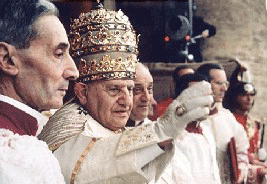Jewish-Christian Dialogue and the Theology of Religions
DOI:
https://doi.org/10.6017/scjr.v1i1.1356Keywords:
Jewish-Christian Dialogue, Theology of ReligionsAbstract
From a historical point of view, the new understanding of the relationship between the Catholic Church and the Jewish people was the catalyst for the Second Vatican Council to elaborate a declaration on the non-Christian religions. This is not a mere accident. The Jewish-Christian relationship does, even from a systematic point of view, play a paradigmatic, critical and corrective function for a Christian theology of religions. It has a character sui generis, for Judaism constitutes the Other within Christian self-identity. The Jewish-Christian relationship helps to formulate the meaning of the particular in the discussion of the universal Christian claim of truth and salvation when facing other religions. Furthermore, it prevents a theology of religion from sliding into abstract, non-historical and purely speculative definitions. Normally, Christology and especially the theology of Incarnation guarantees it, but they have to be linked themselves back to the messianic idea of Judaism and the history of salvation where the Church itself recognizes the unrevoked covenant between God and Israel. Only a theology of religions that recognizes the lasting challenge of the Jewish faith for Christian identity will have overcome anti-Judaism at its roots.Downloads
Published
How to Cite
Issue
Section
License
Copyright (c) 2015 Studies in Christian-Jewish Relations

This work is licensed under a Creative Commons Attribution 4.0 International License.
Please navigate to the Copyright Notice page for more information.

